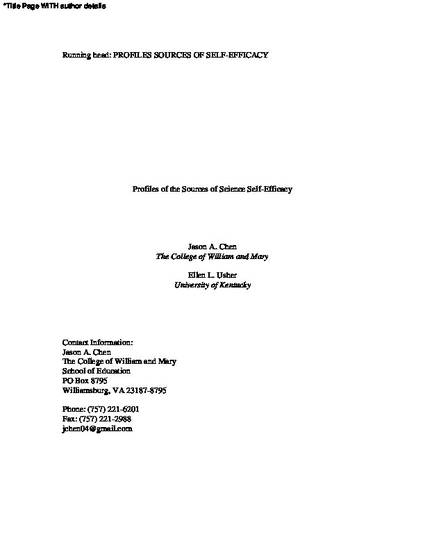
The purpose of this study was to investigate (a) the latent profiles that arise from middle and high school students’ (N = 1225) reported exposure to information from the four hypothesized sources of self-efficacy; (b) the relationships between these latent profiles and science self-efficacy and science achievement; and (c) the differences in latent profiles as a function of implicit theory of science ability, gender, and grade level. Results revealed that a four-class solution fit the data the best. Results support past findings indicating that mastery experiences are a powerful source of self-efficacy. Furthermore, there seemed to be an additive benefit of drawing from multiple sources simultaneously. Gender did not predict membership in these four profiles, but implicit theory of ability and grade level did. The results show that students in the most adaptive profiles drew from multiple sources of efficacy-relevant information and espoused a strong belief in the plasticity of their science abilities, whereas those who were in the least adaptive profiles exhibited a high degree of negative affect and held a fixed view of science ability.
Available at: http://works.bepress.com/jasonchen/2/
